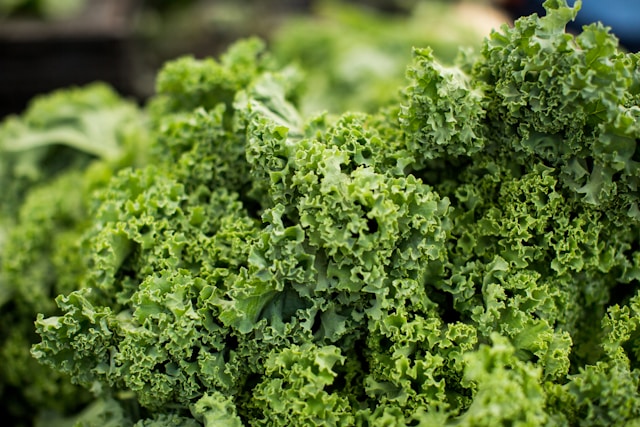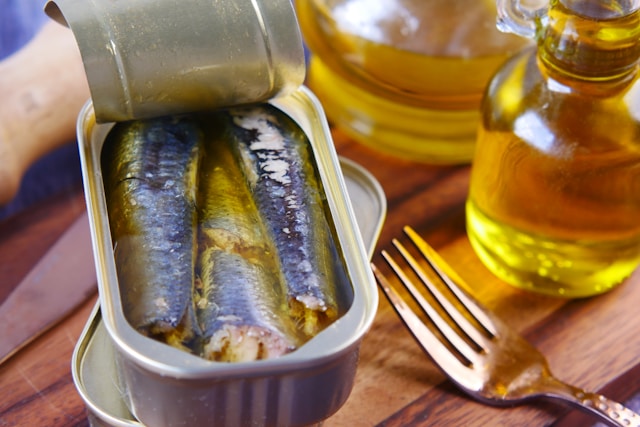10 Wonderful Health Benefits of Pineapple Juice
December 12, 2018 1 Comment
By far, one of the best fruit fragrances is that of pineapple. And therefore we all love pineapple, kids and adults alike. But eating pineapple is a bit tricky. You just can’t bite in it like you do to fruits like an apple or guava. Comparatively drinking pineapple juice is easier, of course, for those who just drink it, not for the person who makes it. But besides being so tasty, pineapple is extremely healthy. And its juice offers all its health benefits. Earth’s Wisdom today wants to share the amazing health benefits of pineapple juice.
A remarkable thing about pineapple juice is that it’s so sweet that it needs no added sugar. If you buy pineapple juice at a juice bar, they will only add ascorbic acid alias vitamin C which is added to protect the color and flavor of the juice. If you don’t want it added to the juice, you can choose to juice a pineapple on your own.
However, remember to avoid the juice-like pineapple drinks available in the market which are not actually juice, but only flavored sugar water and are of course not at all healthy.
1. Nutrition Dense
An 8-ounce cup of unsweetened pineapple juice has 33 milligrams calcium, 30 mg magnesium and 130 calories. Even though ascorbic acid is not added, the juice originally contains 25 mg vitamin C which is one third of the daily recommended intake for women (75mg) and more than 25% for men (90mg). Plus, it also has 0.78mg of iron (10% of RDI for men; however, RDI for women is quite higher i.e. 18mg).
2. Heart-healthy Properties
Pineapple juice contains high levels of antioxidants, including vitamin C and bromelain, which can help to reduce inflammation and protect against heart disease. Bromelain has been shown to help reduce blood pressure and improve blood flow, which can reduce the risk of heart disease. Additionally, the high potassium content in pineapple juice can help to regulate blood pressure and support healthy heart function. Drinking pineapple juice regularly can also help to lower levels of LDL (bad) cholesterol, which is a major risk factor for heart disease. Overall, incorporating pineapple juice into a healthy diet can be a tasty and beneficial way to support heart health.
3. Prevention of Cataract
Pineapple juice contains a powerful antioxidant called vitamin C, which has been shown to play a role in preventing the development of cataracts. Cataracts occur when the lens of the eye becomes cloudy, resulting in blurred vision and eventual blindness if left untreated.
Research suggests that consuming foods and drinks high in vitamin C, such as pineapple juice, can help to reduce the risk of cataract formation. Vitamin C helps to protect the lens of the eye from damage caused by free radicals, which are unstable molecules that can harm cells in the body.
Furthermore, pineapple juice also contains the enzyme bromelain, which has anti-inflammatory properties that may help to reduce inflammation in the eye that can contribute to the development of cataracts.
While pineapple juice may not completely prevent cataracts from forming, adding it to your diet can certainly provide a tasty way to support your eye health. As always, it's important to talk to your doctor about any concerns you may have regarding your eye health and any dietary changes you are considering.
4. Anti-inflammatory Properties
Pineapple is the only known major food source of bromelain. Bromelain is a proteolytic enzyme, i.e. it metabolizes protein. A study has shown that pineapple can be helpful in treating sports injuries, due to the anti-inflammatory properties of bromelain which include reduction of bruising and swelling. Bromelain also acts a scavenger enzyme i.e. it cleans up damaged cells. It also contains compounds that prevent clotting of blood.
5. Anticancer Properties
Pineapple juice contains natural compounds such as bromelain and beta-carotene that have been studied for their potential anticancer properties. Bromelain has been shown to induce apoptosis (cell death) in cancer cells and also has anti-inflammatory effects that may help reduce the risk of cancer. Beta-carotene, a type of carotenoid, has been linked to a lower risk of certain types of cancer, including lung cancer. Pineapple juice also contains other nutrients such as vitamin C, which can help support the immune system and reduce oxidative stress in the body, which are factors that can contribute to the development of cancer. However, more research is needed to fully understand the potential anticancer effects of pineapple juice and its components.
6. Useful for Fertility
While there is limited scientific research on the direct effects of pineapple juice on fertility, it is rich in several key nutrients that can support reproductive health. Pineapple contains bromelain, an enzyme that can aid in the breakdown of proteins and reduce inflammation. It is also high in vitamin C, which has been linked to improved sperm quality in men and increased fertility in women. Pineapple juice can also help regulate blood sugar levels, which is important for maintaining hormone balance. Furthermore, it contains manganese, a mineral that is essential for healthy reproductive function. While pineapple juice alone may not increase fertility, incorporating it as part of a balanced diet can contribute to overall reproductive wellness.
7. Reduction in Constipation and Bloating
Pineapple juice is a delicious and refreshing drink that can also help alleviate digestive issues like constipation and bloating. Pineapple contains a natural enzyme called bromelain, which helps break down protein and aids in digestion. This enzyme can help regulate bowel movements and prevent constipation.
In addition, pineapple juice is high in fiber, which adds bulk to the stool and helps keep the digestive system moving smoothly. The fiber in pineapple juice can also help reduce bloating by promoting the growth of healthy gut bacteria and reducing inflammation in the gut.
To enjoy the digestive benefits of pineapple juice, it's best to drink it in moderation as part of a healthy and balanced diet. Avoid consuming too much pineapple juice at once as it can cause stomach upset and diarrhea. Incorporating pineapple juice into your diet along with other fiber-rich foods and plenty of water can help keep your digestive system healthy and functioning properly.
8. Rich Source of Manganese
Pineapple juice is a great source of manganese, a mineral that plays a crucial role in various bodily functions. Manganese is essential for the formation of connective tissues, bone development, and wound healing. It also helps in the metabolism of carbohydrates, cholesterol, and amino acids. A single cup of pineapple juice contains around 1.3 mg of manganese, which is approximately 57% of the recommended daily intake. Drinking pineapple juice regularly can help you meet your daily manganese needs and promote overall health. However, it's important to consume pineapple juice in moderation as it also contains natural sugars and calories.
9. Treats Osteoarthritis
Pineapple juice contains a powerful enzyme called bromelain, which has been found to have anti-inflammatory properties. This enzyme has been shown to reduce inflammation and pain associated with osteoarthritis. Studies have also suggested that bromelain can help improve joint function and mobility in individuals with osteoarthritis.
Bromelain works by breaking down proteins in the body that contribute to inflammation. By reducing inflammation in the joints, it can help alleviate pain and stiffness. Pineapple juice also contains high levels of vitamin C, which has been linked to a lower risk of developing osteoarthritis.
It is important to note that while pineapple juice may offer some relief for osteoarthritis symptoms, it should not be considered a substitute for medical treatment. If you are experiencing joint pain or stiffness, it is important to consult with a healthcare professional to determine the best course of treatment.
10. Prevents Exercise-induced Asthma
Exercise-induced asthma is often triggered by inflammation in the airways, so drinking pineapple juice can help alleviate these symptoms. Bromelain has also been found to help reduce mucus production in the respiratory system, which can further aid in preventing asthma attacks during exercise. Additionally, the high vitamin C content in pineapple juice may also have a beneficial effect on lung function. So, incorporating pineapple juice into your diet may help prevent exercise-induced asthma and improve overall respiratory health. However, it's important to note that pineapple juice may not be a substitute for proper medical treatment and should be used as a complementary approach.
Conclusion
In conclusion, pineapple juice is a refreshing and delicious beverage that offers a wide range of health benefits. From supporting digestion to boosting immunity and improving heart health, this tropical drink is packed with nutrients, antioxidants, and enzymes that can help to promote overall health and wellbeing. Whether enjoyed on its own or added to smoothies and other recipes, pineapple juice is a versatile and flavorful way to incorporate more essential nutrients into your diet. So why not raise a glass of pineapple juice today and toast to your health?
1 Response
Leave a comment
Comments will be approved before showing up.
Also in Wisdom News

The Importance of Vitamin K2: Unlocking its Role in Health and Wellness
September 22, 2024

The Importance of Omega-3 Fatty Acids: A Comprehensive Review of Their Effects on the Body
August 02, 2024

The Benefits of Mindfulness Meditation for Mental Health
July 12, 2024
Disclaimer: These statements have not been evaluated by the FDA. These products are not intended to diagnose, treat, cure or prevent any disease.
© 2025 Earth's Wisdom®. All Rights Reserved.





glorya
May 04, 2021
nice article!
I learned a lot and learned that pineapple has many benefits for the human body.
did you know that pineapple skin waste for wound treatment? check this out: http://news.unair.ac.id/en/2019/06/25/unair-students-use-pineapple-skin-waste-for-wound-treatment/
thanks for sharing!